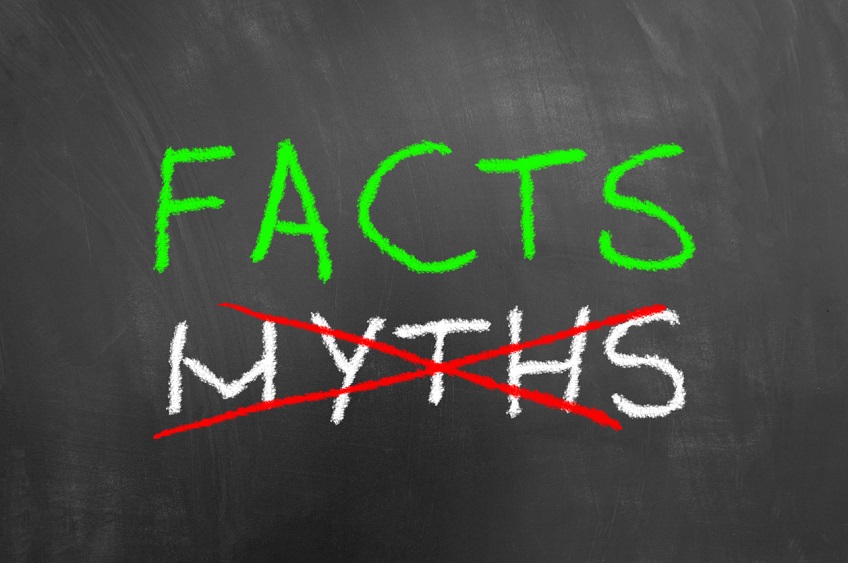
As a nutrition scientist focused on getting sound, evidence-based facts to consumers, sensational headlines can be my worst enemy.
Perhaps the worst is when a headline blames a single food or ingredient for a disease or condition.
I’m amazed how some food and nutrition myths have persisted, despite scientific data that disproves them. Indeed, sometimes, a food or ingredient NEVER had a legitimate reason to be maligned, yet it was.
Monosodium glutamate, or “MSG” is one such ingredient. Fear about MSG began with a single letter to the editor – not a research study – published in a medical journal. The writer was curious if anyone else had felt the symptoms he had after eating in a Chinese restaurant. Although the writer, a physician, suggested several possible causes for his symptoms, only one took hold: monosodium glutamate, or MSG.
Almost overnight, and long before the advent of social media or the Internet, fear of MSG went viral. People who had been eating in Chinese restaurants for decades were suddenly reporting symptoms of “Chinese restaurant syndrome”: headaches, heart palpitations, dizziness, and more. The impact on Chinese restaurants and food producers that used MSG in their products was staggering. MSG was quickly removed from menus and ingredient lists. Yet MSG has been added to foods in cuisines the world over – without report of symptoms – for decades.
Dozens of Research Studies on MSG Safety
The public’s sudden alarm prompted dozens of research studies on MSG’s safety and potential symptoms, costing millions of dollars and occupying thousands of hours of researchers’ time and effort.
Scientists were baffled. They knew MSG wasn’t new and it only contained sodium and glutamate, both of which are found in the body in enormous quantities, compared to what someone would eat in even a large meal. Did MSG have a way of “binding” to foods, setting up some kind of new compound that could explain the symptoms? Did it change foods in some way? Did eating it in a meal spike someone’s absorption?
Many types of studies were conducted, but the gold standard is the double-blind placebo-controlled trial. Test subjects, who self-identified as “MSG-sensitive,” were given either a pill with a dose of MSG or a placebo (identical-looking pill with no MSG). Neither the subjects nor the investigators were made aware of which subjects received which pill until after the data were collected, hence the “double-blind” reference.
BOTH groups reported symptoms at the same levels! Subjects were just as likely to report symptoms when they received the placebo as when they received the MSG.
Despite the Lack of Evidence MSG Myths Persist
Despite the lack of evidence for “Chinese restaurant syndrome,” MSG myths persist to this day. I recently saw a statement on a “health-type” blog saying MSG was harmful and even gave an explanation for how it worked in the body. The author accurately distinguished between “free” and “bound” forms of glutamate: bound glutamate is found in the plant- and animal-based protein foods we eat. Free glutamate exists both in foods and added as MSG. The blog noted that free glutamate – in the form of added MSG – was more dangerous, saying that it is: “no longer bound to other amino acids, and may therefore be absorbed much more rapidly, causing spikes in the concentration of glutamate in the blood.”
FALSE!! The facts: 95% of all glutamate – free or bound – stays in the gut and is never absorbed. Glutamate actually provides fuel for the gut and helps trigger important metabolic functions that occur elsewhere in the body.
Glutamate is an amino acid – one of the building blocks of protein. The body can make it, so it’s not an “essential amino acid”. In fact, the body produces about 50 grams of glutamate a day on average, compared to the ½-gram you might consume from food.
Even if you never ate any food with added MSG, you’re eating glutamate, including free glutamate. Glutamate is naturally present in many healthful foods: tomatoes, mushrooms, eggplant, corn, and one of my favorites, Parmesan cheese. Indeed, where would Italian food be without these foods, and their naturally-present glutamate?
The safety of MSG has been noted by many major international health organizations around the world. There was never a plausible reason for concern about MSG. Some people will have their opinions, but I have to make recommendations based on sound science.

